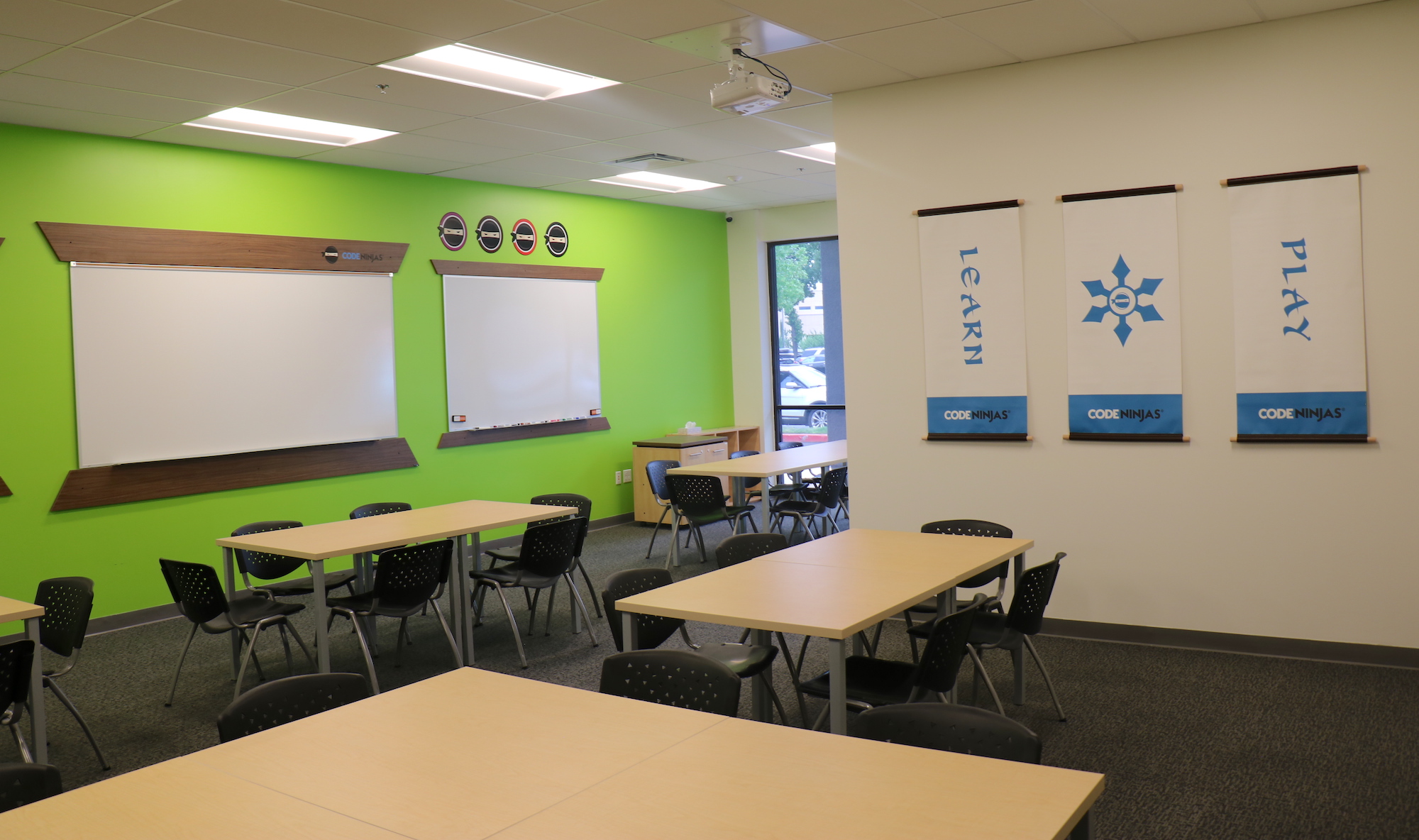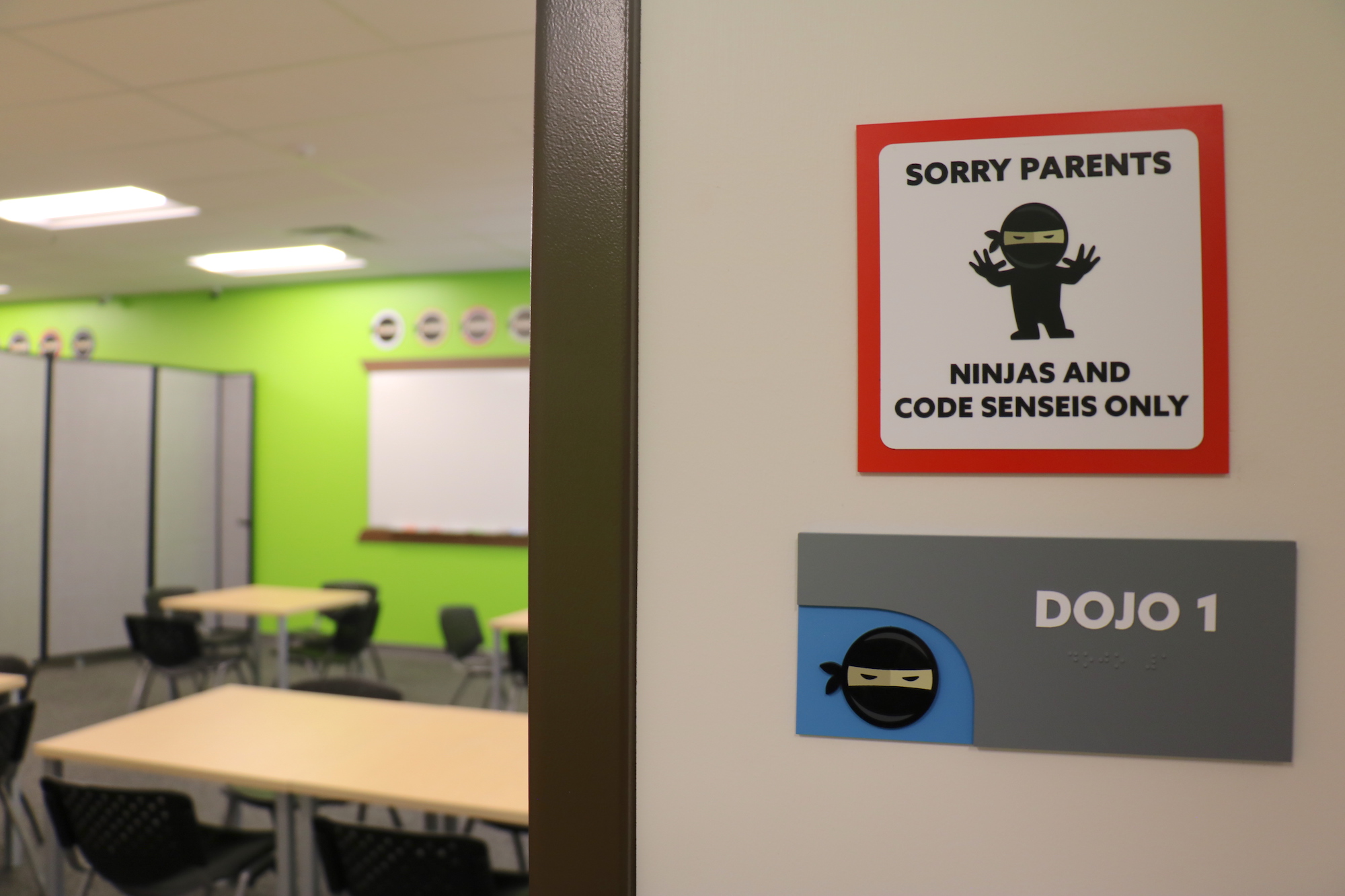Christine Miller, left, and Eric Miller opened a Code Ninjas franchise after seeing the positive impacts coding and STEM education had on their own children. Photo by Kaleb Roedel.
 Code Ninjas in Reno has two “dojos” where registered children work through a video game-based curriculum. Photo: Kaleb M. Roedel / NNBW
Code Ninjas in Reno has two “dojos” where registered children work through a video game-based curriculum. Photo: Kaleb M. Roedel / NNBW
 Designed as an after-school learning center, Code Ninjas is open Monday-Friday from 3-7 p.m., and Saturdays from 10 a.m.-2 p.m. Photo: Kaleb M. Roedel / NNBW
Designed as an after-school learning center, Code Ninjas is open Monday-Friday from 3-7 p.m., and Saturdays from 10 a.m.-2 p.m. Photo: Kaleb M. Roedel / NNBW